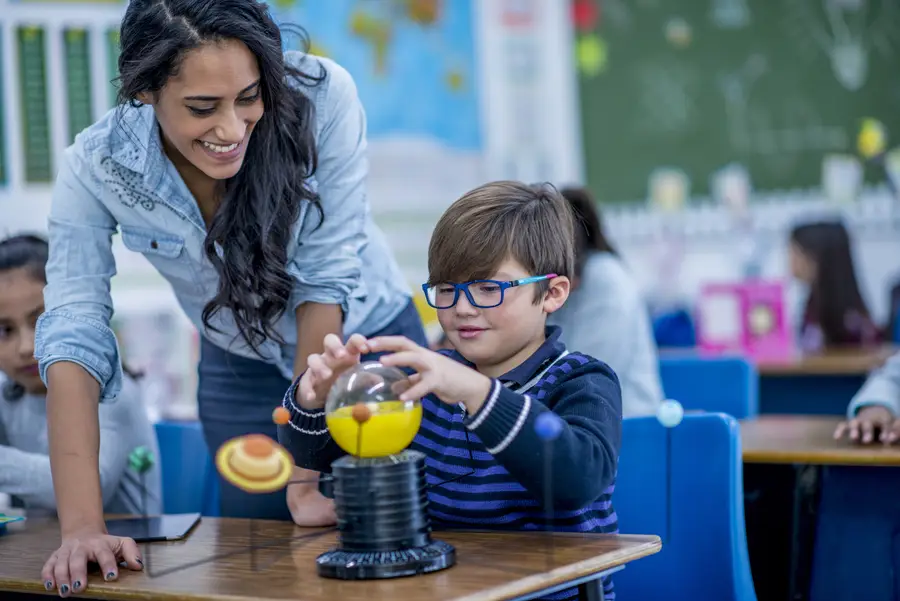
This fall, three student teams from Cumberland County Schools (CCS) in Cumberland County, North Carolina will travel to the Kennedy Space Center in Cape Canaveral, Florida to watch the launch of a SpaceX Falcon 9 rocket carrying a very special payload destined for the International Space Station (ISS). These student teams competed against more than 300 of their peers and 63 proposed spaceflight experiments to have their submissions chosen for implementation by astronauts onboard the ISS.
The spaceflight design challenge is the annual culminating event of the STARward STEM program, but it is just one component of the three-year Department of Defense (DoD) grant-funded initiative to provide access to high-quality science, technology, engineering, and mathematics (STEM) education opportunities for youth. Led by RTI International, the program aims to train and coach over 300 CCS teachers as they strive to create STAR (Something They’ll Always Remember) classroom experiences for more than 4,600 K-12 students and inspire them to pursue future STEM careers.
The STARward STEM program aligns perfectly with the mission of the DoD STEM initiative to “inspire, cultivate, and develop exceptional STEM talent through a continuum of opportunities to enrich our current and future DoD workforce poised to tackle evolving defense technological challenges.” Yet this challenge is not limited to the military, as the U.S. Bureau of Labor Statistics predicts that STEM careers will grow twice as fast as all other occupations combined over the next decade.
Using the theme of space and an inquiry-based approach to teaching, Cumberland County educators are inspiring student curiosity, creating opportunities for authentic problem-solving, and forging connections with current STEM professionals, representative of the district’s population. Aside from being a key modernization priority for the DoD STEM initiative, space can serve as a great connecting theme that brings all content areas together.
Many of the STARward STEM participating teachers are not assigned to STEM classrooms but are learning how the space theme can help bring STEM and project-based learning (PBL) to life in their own content areas. Throughout the program, all teachers have had the opportunity to learn about space in engaging and inquiry-based ways.
Teachers new to the program began by visiting local STEM industry partners, learning all about the STEM skills they used in the workplace, and reflecting on how those skills could align to the standards and content taught in their own classrooms. This learning continued during the Summer Institute, where teachers learned all about why astronauts float, how microgravity affects the astronauts on the ISS, the challenges of space travel, and the importance of exploring space.
In June, three teachers from the STARward STEM program traveled to Huntsville, Alabama to learn what it is like to be an astronaut by attending the Space Academy for Educators sponsored by the US Space and Rocket Center. Another group of teachers and leaders from CCS traveled to Chicago, Illinois to the National Science Teacher Association Conference to share strategies they used to engage all students in STEM learning through the STARward STEM program as well as to learn from other sessions and presenters about space and other science-related topics.
We know that STAR moments can inspire students. However, we have also found that it is equally important to create those STAR experiences for teachers. By providing experiences to help teachers learn and grow, both professionally and around the theme of space, they are inspired to re-envision what learning can look like for their students. Additional program support, instructional coaching in PBL, and industry connections within the community empower teachers with the necessary resources and confidence to engage students in STEM learning, so they can begin to see themselves as a part of the future STEM career pipeline.

